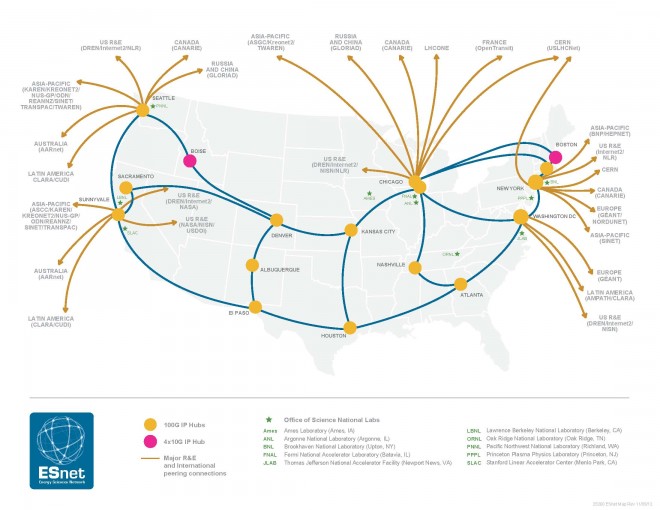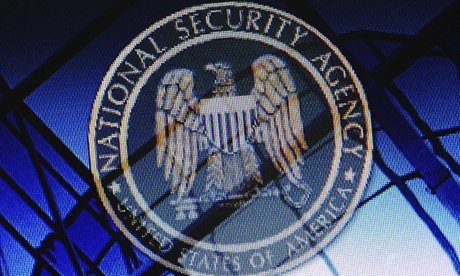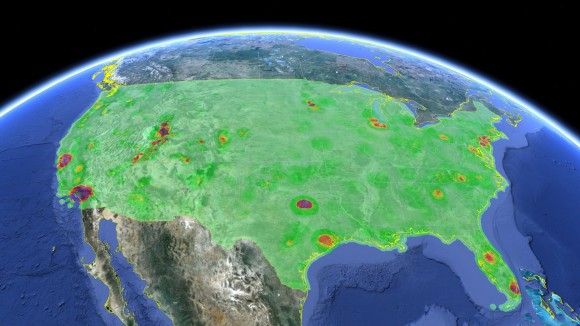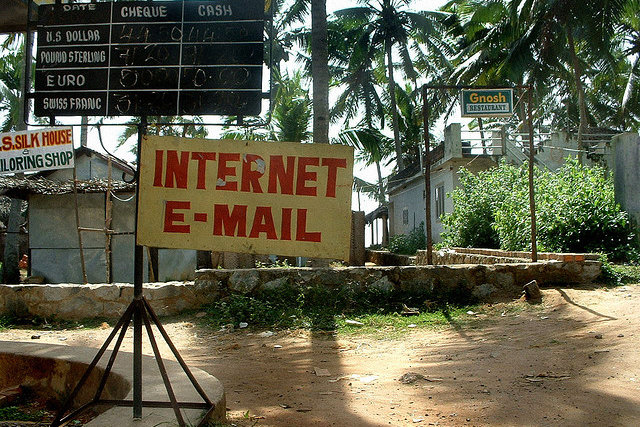Entries tagged as internet
Friday, September 05. 2014
Via The Register
-----
Google is attempting to shunt users away from old browsers by
intentionally serving up a stale version of the ad giant's search
homepage to those holdouts.
The tactic appears to be falling in line with Mountain View's policy on its other Google properties, such as Gmail, which the company declines to fully support on aged browsers.
However, it was claimed on Friday in a Google discussion thread
that the multinational had unceremoniously dumped a past its
sell-by-date version of the Larry Page-run firm's search homepage on
those users who have declined to upgrade their Opera and Safari
browsers.
A user with the moniker DJSigma wrote on the forum:
A few minutes ago, Google's homepage reverted to the old version for
me. I'm using Opera 12.17. If I search for something, the results are
shown with the current Google look, but the homepage itself is the old
look with the black bar across the top. It seems to affect only the
Google homepage and image search. If I click on "News", for instance,
it's fine.
I've tried clearing cookies and deleting the browser cache/persistent
storage. I've tried disabling all extensions. I've tried masking the
browser as IE and Firefox. It doesn't matter whether I'm signed in or
signed out. Nothing works. Please fix this!
In a later post, DJSigma added that there seemed to be a glitch on Google search.
If I go to the Google homepage, I get served the old version of the
site. If I search for something, the results show up in the current
look. However, if I then try and type something into the search box
again, Google search doesn't work at all. I have to go back to the
homepage every time to do a new search.
The Opera user then said that the problem appeared to be
"intermittent". Others flagged up similar issues on the Google forum
and said they hoped it was just a bug.
While someone going by the name MadFranko008 added:
Phew ... thought it was just me and I'd been hacked or something ...
Same problem here everything "Google" has reverted back to the old style
of several years ago.
Tested on 3 different computers and different OS's & browsers ...
All have the same result, everything google has gone back to the old
style of several years ago and there's no way to change it ... Even the
copyright has reverted back to 2013!!!
Some Safari 5.1.x and Opera 12.x netizens were able to
fudge the system by customising their browser's user agent. But others
continued to complain about Google's "clunky", old search homepage.
A
Google employee, meanwhile, said that the tactic was deliberate in a
move to flush out stick-in-the-mud types who insisted on using older
versions of browsers.
"Thanks for the reports. I want to assure
you this isn't a bug, it's working as intended," said a Google worker
going by the name nealem. She added:
We’re continually making improvements to Search, so we can only
provide limited support for some outdated browsers. We encourage
everyone to make the free upgrade to modern browsers - they’re more
secure and provide a better web experience overall.
In a separate thread, as spotted by a Reg
reader who brought this sorry affair to our attention, user
MadFranko008 was able to show that even modern browsers - including the
current version of Chrome - were apparently spitting out glitches on
Apple Mac computers.
Google then appeared to have resolved the search "bug" spotted in Chrome.
Wednesday, July 16. 2014
Via Wired
-----

Illustration: dzima1/Getty
When Google chief financial officer Patrick Pichette said the tech giant might bring 10 gigabits per second internet connections
to American homes, it seemed like science fiction. That’s about 1,000
times faster than today’s home connections. But for NASA, it’s downright
slow.
While the rest of us send data across the public internet, the space agency uses a shadow network called ESnet, short for Energy Science Network, a set of private pipes that has demonstrated cross-country data transfers of 91 gigabits per second–the fastest of its type ever reported.
NASA isn’t going bring these speeds to homes, but it is using this
super-fast networking technology to explore the next wave of computing
applications. ESnet, which is run by the U.S. Department of Energy, is
an important tool for researchers who deal in massive amounts of data
generated by projects such as the Large Hadron Collider and the Human
Genome Project. Rather sending hard disks back and forth through the
mail, they can trade data via the ultra-fast network. “Our vision for
the world is that scientific discovery shouldn’t be constrained by
geography,” says ESnet director Gregory Bell.
In making its network as fast as it can possibly be, ESnet and
researchers are organizations like NASA are field testing networking
technologies that may eventually find their way into the commercial
internet. In short, ESnet a window into what our computing world will
eventually look like.
The Other Net
The first nationwide computer research network was the Defense
Department’s ARPAnet, which evolved into the modern internet. But it
wasn’t the last network of its kind. In 1976, the Department of Energy
sponsored the creation of the Magnetic Fusion Energy Network to connect
what is today the National Energy Research Scientific Computing Center
with other research laboratories. Then the agency created a second
network in 1980 called the High Energy Physics Network to connect
particle physics researchers at national labs. As networking became more
important, agency chiefs realized it didn’t make sense to maintain
multiple networks and merged the two into one: ESnet.
The nature of the network changes with the times. In the early days
it ran on land lines and satellite links. Today it is uses fiber optic
lines, spanning the DOE’s 17 national laboratories and many other sites,
such as university research labs. Since 2010, ESnet and Internet2—a
non-profit international network built in 1995 for researchers after the
internet was commercialized—have been leasing “dark fiber,” the excess
network capacity built-up by commercial internet providers during the
late 1990s internet bubble.
An Internet Fast Lane
In November, using this network, NASA’s High End Computer Networking
team achieved its 91 gigabit transfer between Denver and NASA Goddard
Space Flight Center in Greenbelt, Maryland. It was the fastest
end-to-end data transfer ever conducted under “real world” conditions.
ESnet has long been capable of 100 gigabit transfers, at least in
theory. Network equipment companies have been offering 100 gigabit
switches since 2010. But in practice, long-distance transfers were much
slower. That’s because data doesn’t travel through the internet in a
straight line. It’s less like a super highway and more like an
interstate highway system. If you wanted to drive from San Francisco to
New York, you’d pass through multiple cities along the way as you
transferred between different stretches of highway. Likewise, to send a
file from San Francisco to New York on the internet—or over ESnet—the
data will flow through hardware housed in cities across the country.

A map of ESnet’s connected sites. Image: Courtesy of ESnet
NASA did a 98 gigabit transfer between Goddard and the University of Utah over ESnet in 2012. And Alcatel-Lucent and BT obliterated that record
earlier this year with a 1.4 terabit connection between London and
Ipswich. But in both cases, the two locations had a direct connection,
something you rarely see in real world connections.
On the internet and ESnet, every stop along the way creates the
potential for a bottleneck, and every piece of gear must be ready to
handle full 100 gigabit speeds. In November, the team finally made it
work. “This demonstration was about using commercial, off-the-shelf
technology and being able to sustain the transfer of a large data
network,” says Tony Celeste, a sales director at Brocade, the company
that manufactured the equipment used in the record-breaking test.
Experiments for the Future
Meanwhile, the network is advancing the state of the art in other
ways. Researchers have used it to explore virtual network circuits
called “OSCARS,”
which can be used to create complex networks without complex hardware
changes. And they’re working on what are known as network “DMZs,” which can achieve unusually fast speeds by handling security without traditional network firewalls.
These solutions are designed specifically for networks in which a
small number of very large transfers take place–as opposed to the
commercial internet where lots of small transfers take place. But
there’s still plenty for commercial internet companies to learn from
ESnet. Telecommunications company XO Communications already has a 100 gigabit backbone, and we can expect more companies to follow suit.
Although we won’t see 10-gigabit connections—let alone 100 gigabit
connections—at home any time soon, higher capacity internet backbones
will mean less congestion as more and more people stream high-definition
video and download ever-larger files. And ESnet isn’t stopping there.
Bell says the organization is already working on a 400 gigabit network,
and the long-term goal is a terabyte per second network, which about
100,000 times faster than today’s home connections. Now that sounds like
science fiction.
Update 13:40 EST 06/17/14: This story has been updated to make it clear that ESnet is run by the Department of Energy.
Update 4:40 PM EST 06/17/14: This story has been updated to avoid
confusion between ESnet’s production network and its more experimental
test bed network.
Friday, June 20. 2014
Via TechCrunch
-----

Not very often do you read something online that gives you the chills. Today, I read two such things.
The first came from former Gizmodo, Buzzfeed and now Awl writer John Herrman, who wrote about the brutality of the mobile social (or for sake of discussion ‘fourth’) Internet:
“Metafilter came from two or three internets ago, when a
website’s core audience—people showing up there every day or every week,
directly—was its main source of visitors. Google might bless a site
with new visitors or take them away.
Either way, it was still possible for a site’s fundamentals to be
strong, independent of extremely large outside referrers. What’s so
disconcerting now is that the new sources of readership, the apps and
sites people check every day and which lead people to new posts and
stories, make up a majority of readership, and they’re utterly
unpredictable (they’re also bigger, always bigger, every new internet
is.)”
This broke my heart. In 2008, two Internets ago, Metafilter was my favorite site. It was where I went to find out what the next Star Wars Kid would be, or to find precious baby animal videos to show my cool boyfriend or even more intellectual fare. And now it’s as endangered as the sneezing pandas I first discovered there.
National Internet treasures like Metafilter (or TechCrunch
for that matter) should never die. There should be some Internet
Preservation Society filled with individuals like Herrman or Marc
Andreessen or Mark Zuckerberg or Andy Baio whose sole purpose is to keep them alive.
But there isn’t. Herrman makes a very good point; Useful places to
find information, that aren’t some strange Pavlovian manipulation of the
human desire to click or identify, just aren’t good business these
days.
And Herrman should know, he’s worked in every new media outlet under
the web, including the one that AP staffers are now so desperate to join
that they make mistakes like this.
The fourth Internet is scary like Darwinism, brutal enough to remind
me of high school. It’s a game of identity where you either make people
feel like members of some exclusive club, like The Information
does with a pricy subscription model or all niche tech sites do with
their relatively high CPM, or you straight up play up to reader
narcissism like Buzzfeed does, slicing and dicing user identity until
you end up with “21 Problems Only People With Baby Faces Will Understand.”
Which brings me to the thing I read today which truly scared the shit out of me. Buzzfeed founder Jonah Peretti, though his LinkedIn is completely bereft of it in favor of MIT, was apparently an undergrad at UC Santa Cruz in the late 90s.
Right after graduation in 1996, he wrote a paper
about identity and capitalism in post-modern times, which tl:dr
postulated that neo-capitalism needs to get someone to identify with its
ideals before it could sell its wares.
(Aside: If you think you are immune to capitalistic entreaties, because you read Adbusters and are a Culture Jammer,
you’re not. Think of it this way: What is actually wrong with being
chubby? But how hard do modern ads try to tell you that this — which is
arguably the Western norm — is somehow not okay.)
The thesis Peretti put forth in his paper is basically the blueprint for Buzzfeed, which increasingly has made itself All About You. Whether you’re an Armenian immigrant, or an Iggy Azaelia fan or
a person born in the 2000s, 1990s or 80s, you will identify with
Buzzfeed, because its business model (and the entire fourth Internet’s )
depends on it.
As Dylan Matthews writes:
“The way this identification
will happen is through images and video, through ‘visual culture.’
Presumably, in this late capitalist world, someone who creates a website
that can use pictures and GIFs and videos to form hundreds if not
thousands of new identities for people to latch onto will become very
successful!”
More than anything else in the pantheon of modern writing or as the
kids call it, content creation, Buzzfeed aims to be hyper-relatable,
through visuals! It hopes it can define your exact identity, because
only then will you share its URL on Facebook and Twitter and Tumblr as
some sort of badge of your own uniqueness, immortality.
If the first Internet was “Getting information online,” the second
was “Getting the information organized” and the third was “Getting
everyone connected” the fourth is definitely “Get mine.” Which is a
trap.
Which Cog In The Digital Capitalist Machine Are You?
Friday, June 13. 2014
Via TechCrunch
-----

There is no point in kidding ourselves, now, about Who Has the Power.
– Hunter S. Thompson, jacket copy, Fear and Loathing in Las Vegas
The Internet wasn’t supposed to be so…Machiavellian.
In 1963, Stewart Brand
and his wife set out on a landmark road trip, the goal of which was to
educate and enliven the people they encountered with tools for modern
living. The word “tools” was taken liberally. Brand wrote that “a realm
of intimate, personal power is developing.” Any tool that created or
channeled such power was useful. Tools meant books, maps, professional journals, courses, classes, and more.
In 1968, Brand founded the Whole Earth Catalog (WEC), an underground
magazine of sorts that would scale in a way no road-weary Dodge ever
could. The first issue was 64 pages and cost $5. It opened with the
phrase: “We are as gods and might as well get good at it.”
A year after WEC’s start, on October 29, 1969, the first packet of data was sent from UCLA to SRI International. It was called ARPAnet
at the time, but with it the Internet was born. Brand and others would
come to see the Internet as the essential, defining “tool” of their
generation. Until its final issue in 1994, the WEC’s 32 editions provide
as good a chronicle of the emergence of cyberculture (as it was then
called) as you can find.
Cyberculture. It’s a curious and complicated term in today’s society,
isn’t it? Cyberculture is at once completely outdated and awfully
relevant.
As Fred Turner has argued,
Brand is a key figure in the weaving together of two major cultural
fabrics that have since split — counterculture and cyberculture. Brand
is also immortalized in Tom Wolfe’s The Electric Kool-Aid Acid Test as a member of Ken Kesey’s Merry Pranksters. And Brand famously assisted researcher Doug Engelbart with the “Mother of all Demos,” the outline of a vision for technology prosthetics that improve human life; it would define computing for decades to come.

The Merry Pranksters, still from the movie Magic Trip
Brand attended Phillips Exeter Academy — an elite East Coast high
school, and an institution of traditional power if there ever was one.
He was a parachutist in the U.S. Army. He graduated with a degree in
biology from Stanford, studied design at San Francisco Art Institute and
photography at San Francisco State. He also participated in legal
studies of LSD and its effects with Timothy Leary.
That’s hardly the typical resume of a technologist or an entrepreneur
or an investor. But it should be. The business of making culture has
been for too long now controlled by people who live outside it.
It is my opinion that the Internet of today can and must be
countercultural again, that cyberculture should — needs to be —
countercultural.
That word, countercultural, carries with it
the connotation of liberal idealism and societal marginalia. Yet, the
new countercultures we’re seeing online today are profoundly mainstream,
and drawn along wholly different political lines. The Internet is its
own party. The Internet has its own set of beliefs. Springs have sprung
the world over and this isn’t simply a nerd thing anymore. We all care
passionately about Internet life and Internet liberty and the continual
pursuit of happiness both online and off.
Yet if the Internet is a measure of our culture, our zeitgeist, then
what does it tell us about the spirit of this age? Our zeitgeist
certainly isn’t what’s trending; it’s not another quiz of which TV
character you are; it’s not another listicle. I changed the global power
structure and all I got was this lousy t-shirt. And Facebook. And
Twitter.
What is this generation’s Rolling Stone? What is our Whole Earth
Catalog? It’s an important question because if the Internet is defining
our culture, and our use of it defines our society, then we have a
responsibility to ensure and propel its transformative impact, to
understand the ways cyberculture can and should be the counterculture
driving change rather than just distracting us from it.
There are beacons of hope. I eagerly await Jon Evans’ fantastic column in these pages each weekend for reasons like this.

The Daily Dot, a
publication I co-founded, documents today’s cyberculture through the
lens of online communities — virtual locales in which we arguably
“reside” more deliberately than any geography. You should also be
reading Edge, N+1, and Dangerous Minds. Even Vanity Fair has turned its eye to this theme, successfully I think, with articles like this. Rolling Stone is doing a pretty good job of being Rolling Stone these days, too.
I’m terminally optimistic, and I believe that counter-cyber-culture
is inherently optimistic, as well. Even despite the U.S. government’s
overreaching on privacy and “protecting” us from data about our own
bodies, despite Silicon Valley’s mad rush to cash in on apps rather than
substantial technology, despite most online media’s drastic descent to
the lowest common denominator and even lower standards of journalism, I
remain…optimistic.
We have found a courage in our growing numbers online. People old and
young can be be bold and defining on the Internet, underwritten by the
emotional support of peers everywhere. We’re voting for what we want the
world to be, and how we want it to be. Why do you think Kickstarter
works so well? We fund things that without our help are unlikely to
exist, but ought to nonetheless. Our “likes” and “shares” are ultimately
becoming votes for the kind of future we want to live in, and I’m
optimistic that we will ultimately wield that responsibility with
meaning and thoughtfully.
Tumblr. 4chan. Etsy. YouTube. We have emigrated to these outlying
territories seeking religious freedoms, cultural freedoms, and personal
freedoms alike. We colonized, and are still colonizing, new environs
each day and every week. We claim and reclaim the Internet like so many
tribal boundaries.
We’re winning more often than not, thank goodness. Aaron Swartz heroically beat SOPA and PIPA against all odds. Yahoo won against PRISM. The Internet won against cancer…with pizza. My godmother knows what Tor is.
The virtual reality community rebelled when princely Oculus sold to
Facebook, for the reason that VR is a new superpower and a new
countercultural medium that we’re afraid might have fallen into the
wrong hands (I don’t believe that’s actually the case, but that’s
grounds for another post altogether).
So, yes. A countercultural moment all our own stares us in the face.
Like Brand, I hope we can manage to be politically aware and socially
responsible in a way that technology begs us to be, without giving
ground to the idea that the Internet is anything but ours.
Civil disobedience is a different game when the means of production
and dissemination have been fully democratized. We seek differentiated
high ground from which to defend our values. We build new back channels
to communicate unencumbered. Instead of making catalogues, we make new
categories. We wield technology, perhaps unaware on whose shoulders we
stand, but at the same time free from the anxiety of influence.
We aspire to be more pure in that sense. We want and we give and we need and we will have…pure Internet.
Editor’s note: Josh Jones-Dilworth is a co-founder of the Daily Dot; founder and CEO of Jones-Dilworth, Inc., an early-stage technology marketing consultancy; and co-founder of Totem, a startup changing PR for the better. Follow his blog here.
Featured image by Kundra/Shutterstock; Hunter S. Thompson image by Wikimedia Commons user MDCarchives (own work) under a CC-BY-SA-3.0 license
Wednesday, May 14. 2014
Via The Verge
-----
The internet will have nearly 3 billion users, about 40 percent of the world's population, by the end of 2014, according to a new report from the United Nations International Telecommunications Union. Two-thirds of those users will be in developing countries.
Those numbers refer to people who have used the internet in the last three months, not just those who have access to it.
Internet penetration is
reaching saturation in developed countries, while it's growing rapidly
in developing countries. Three out of four people in Europe will be
using the internet by the end of the year, compared to two out of three
in the Americas and one in three in Asia and the Pacific. In Africa,
nearly one in five people will be online by the end of the year.
Mobile phone subscriptions will
reach almost 7 billion. That growth rate is slowing, suggesting that
the number will plateau soon. Mobile internet subscriptions are still
growing rapidly, however, and are expected to reach 2.3 billion by the
end of 2014.
These numbers make it easy to
imagine a future in which every human on Earth is using the internet.
The number of people online will still be dwarfed by the number of
things, however. Cisco estimates the internet already has 10 billion
connected devices and is expected to hit 50 billion by 2020.
Saturday, November 16. 2013
Via The Guardian, Via Samantha Besson
-----

NSA spying, as
revealed by the whistleblower Edward Snowden, may cause countries to
create separate networks and break up the experts, according to experts.
Photograph: Alex Milan Tracy/NurPhoto/NurPhoto/Corbis
The vast scale of online surveillance revealed by Edward Snowden is leading to the breakup of the internet
as countries scramble to protect private or commercially sensitive
emails and phone records from UK and US security services, according to
experts and academics.
They say moves by countries, such as Brazil and Germany,
to encourage regional online traffic to be routed locally rather than
through the US are likely to be the first steps in a fundamental shift
in the way the internet works. The change could potentially hinder
economic growth.
"States may have few other options than to follow
in Brazil's path," said Ian Brown, from the Oxford Internet Institute.
"This would be expensive, and likely to reduce the rapid rate of
innovation that has driven the development of the internet to date … But
if states cannot trust that their citizens' personal data – as well as
sensitive commercial and government information – will not otherwise be
swept up in giant surveillance operations, this may be a price they are
willing to pay."
Since the Guardian's revelations about the scale
of state surveillance, Brazil's government has published ambitious plans
to promote Brazilian networking technology, encourage regional internet
traffic to be routed locally, and is moving to set up a secure national
email service.
In India, it has been reported that government employees are being advised not to use Gmail
and last month, Indian diplomatic staff in London were told to use
typewriters rather than computers when writing up sensitive documents.
In Germany, privacy commissioners have called for a review of whether Europe's internet traffic can be kept within the EU – and by implication out of the reach of British and US spies.
Surveillance dominated last week's Internet Governance Forum 2013,
held in Bali. The forum is a UN body that brings together more than
1,000 representatives of governments and leading experts from 111
countries to discuss the "sustainability, robustness, security,
stability and development of the internet".
Debates on child
protection, education and infrastructure were overshadowed by widespread
concerns from delegates who said the public's trust in the internet was
being undermined by reports of US and British government surveillance.
Lynn
St Amour, the Internet Society's chief executive, condemned government
surveillance as "interfering with the privacy of citizens".
Johan
Hallenborg, Sweden's foreign ministry representative, proposed that
countries introduce a new constitutional framework to protect digital
privacy, human rights and to reinforce the rule of law.
Meanwhile,
the Internet Corporation for Assigned Names and Numbers – which is
partly responsible for the infrastructure of the internet – last week
voiced "strong concern over the undermining of the trust and confidence
of internet users globally due to recent revelations of pervasive
monitoring and surveillance".
Daniel Castro, a senior analyst at
the Information Technology & Innovation Foundation in Washington,
said the Snowden revelations were pushing the internet towards a tipping
point with huge ramifications for the way online communications worked.
"We
are certainly getting pushed towards this cliff and it is a cliff we do
not want to go over because if we go over it, I don't see how we stop.
It is like a run on the bank – the system we have now works unless
everyone decides it doesn't work then the whole thing collapses."
Castro
said that as the scale of the UK and US surveillance operations became
apparent, countries around the globe were considering laws that would
attempt to keep data in-country, threatening the cloud system – where
data stored by US internet firms is accessible from anywhere in the
world.
He said this would have huge implications for the way large companies operated.
"What
this would mean is that any multinational company suddenly has lots of
extra costs. The benefits of cloud computing that have given us
flexibility, scaleability and reduced costs – especially for large
amounts of data – would suddenly disappear."
Large internet-based firms, such as Facebook and Yahoo, have already raised concerns about the impact of the NSA
revelations on their ability to operate around the world. "The
government response was, 'Oh don't worry, we're not spying on any
Americans'," said Facebook founder Mark Zuckerberg. "Oh, wonderful:
that's really helpful to companies trying to serve people around the
world, and that's really going to inspire confidence in American
internet companies."
Castro wrote a report for Itif in August
predicting as much as $35bn could be lost from the US cloud computing
market by 2016 if foreign clients pull out their businesses. And he said
the full economic impact of the potential breakup of the internet was
only just beginning to be recognised by the global business community.
"This
is changing how companies are thinking about data. It used to be that
the US government was the leader in helping make the world more secure
but the trust in that leadership has certainly taken a hit … This is
hugely problematic for the general trust in the internet and e-commerce
and digital transactions."
Brown said that although a localised
internet would be unlikely to prevent people in one country accessing
information in another area, it may not be as quick and would probably
trigger an automatic message telling the user that they were entering a
section of the internet that was subject to surveillance by US or UK
intelligence.
"They might see warnings when information is about
to be sent to servers vulnerable to the exercise of US legal powers – as
some of the Made in Germany email services that have sprung up over the summer are."
He
said despite the impact on communications and economic development, a
localised internet might be the only way to protect privacy even if, as
some argue, a set of new international privacy laws could be agreed.
"How
could such rules be verified and enforced? Unlike nuclear tests,
internet surveillance cannot be detected halfway around the world."
Thursday, March 28. 2013
Via Internet Census 2012
-----
Abstract While playing around with the Nmap Scripting Engine
(NSE) we discovered an amazing number of open embedded devices on the
Internet. Many of them are based on Linux and allow login to standard
BusyBox with empty or default credentials. We used these devices to
build a distributed port scanner to scan all IPv4 addresses. These scans
include service probes for the most common ports, ICMP ping, reverse
DNS and SYN scans. We analyzed some of the data to get an estimation of
the IP address usage.
All data gathered during our research is released into the public domain for further study.
The full study
Continue reading "Internet Census 2012 - Port scanning /0 using insecure embedded devices"
Tuesday, March 05. 2013
Via Slash Gear
-----
Google will be conducting a 45-day public trial
with the FCC to create a centralized database containing information on
free spectrum. The Google Spectrum Database will analyze TV white
spaces, which are unused spectrum between TV stations, that can open
many doors for possible wireless spectrum expansion in the future. By
unlocking these white spaces, wireless providers will be able to provide
more coverage in places that need it.

The public trial brings Google
one step closer to becoming a certified database administrator for
white spaces. Currently the only database administrators are Spectrum
Bridge, Inc. and Telcordia Technologies, Inc. Many other companies are
applying to be certified, including a big dog like Microsoft. With companies like Google and Microsoft becoming certified, discovery of white spaces should increase monumentally.
Google’s trial allows all industry stakeholders, including
broadcasters, cable, wireless microphone users, and licensed spectrum
holders, to provide feedback to the Google Spectrum Database. It also
allows anyone to track how much TV white space is available in their
given area. This entire process is known as dynamic spectrum sharing.
Google’s trial, as well as the collective help of all the other
spectrum data administrators, will help unlock more wireless spectrum.
It’s a necessity as there is an increasing number of people who are
wirelessly connecting to the internet via smartphones, laptops, tablets,
and other wireless devices. This trial will open new doors to more
wireless coverage (especially in dead zones), Wi-Fi hotspots, and other
“wireless technologies”.
Wednesday, December 12. 2012
Via NewScientist
-----
The ethos of freedom from control that underpins the web is facing its first serious test, says Wendy M. Grossman
WHO runs the internet? For the past 30
years, pretty much no one. Some governments might call this a bug, but
to the engineers who designed the protocols, standards, naming and
numbering systems of the internet, it's a feature.
The goal was to build a network that
could withstand damage and would enable the sharing of information. In
that, they clearly succeeded - hence the oft-repeated line from John
Gilmore, founder of digital rights group Electronic Frontier Foundation:
"The internet interprets censorship as damage and routes around it."
These pioneers also created a robust platform on which a guy in a dorm
room could build a business that serves a billion people.
But perhaps not for much longer. This
week, 2000 people have gathered for the World Conference on
International Telecommunications (WCIT) in Dubai in the United Arab
Emirates to discuss, in part, whether they should be in charge.
The stated goal of the Dubai meeting
is to update the obscure International Telecommunications Regulations
(ITRs), last revised in 1988. These relate to the way international
telecom providers operate. In charge of this process is the
International Telecommunications Union (ITU), an agency set up in 1865
with the advent of the telegraph. Its $200 million annual budget is
mainly funded by membership fees from 193 countries and about 700
companies. Civil society groups are only represented if their
governments choose to include them in their delegations. Some do, some
don't. This is part of the controversy: the WCIT is effectively a closed
shop.
Vinton Cerf, Google's chief internet evangelist and co-inventor of the TCP/IP internet protocols, wrote in May that decisions in Dubai "have the potential to put government handcuffs on the net".
The need to update the ITRs isn't
surprising. Consider what has happened since 1988: the internet, Wi-Fi,
broadband, successive generations of mobile telephony, international
data centres, cloud computing. In 1988, there were a handful of
telephone companies - now there are thousands of relevant providers.
Controversy surrounding the WCIT
gathering has been building for months. In May, 30 digital and human
rights organisations from all over the world wrote to the ITU with three
demands: first, that it publicly release all preparatory documents and
proposals; second, that it open the process to civil society; and third
that it ask member states to solicit input from all interested groups at
national level. In June, two academics at George Mason University in
Virginia - Jerry Brito and Eli Dourado - set up the WCITLeaks site, soliciting copies of the WCIT documents and posting those they received. There were still gaps in late November when .nxt, a consultancy firm and ITU member, broke ranks and posted the lot on its own site.
The issue entered the mainstream when Greenpeace and the International Trade Union Confederation (ITUC) launched the Stop the Net Grab
campaign, demanding that the WCIT be opened up to outsiders. At the
launch of the campaign on 12 November, Sharan Burrow, general secretary
of the ITUC, pledged to fight for as long it took to ensure an open
debate on whether regulation was necessary. "We will stay the distance,"
she said.
This marks the first time that such
large, experienced, international campaigners, whose primary work has
nothing to do with the internet, have sought to protect its freedoms.
This shows how fundamental a technology the internet has become.
A week later, the European parliament
passed a resolution stating that the ITU was "not the appropriate body
to assert regulatory authority over either internet governance or
internet traffic flows", opposing any efforts to extend the ITU's scope
and insisting that its human rights principles took precedence. The US
has always argued against regulation.
Efforts by ITU secretary general Hamadoun Touré to spread calm have largely failed. In October, he argued
that extending the internet to the two-thirds of the world currently
without access required the UN's leadership. Elsewhere, he has
repeatedly claimed that the more radical proposals on the table in Dubai
would not be passed because they would require consensus.
These proposals raise two key fears
for digital rights campaigners. The first concerns censorship and
surveillance: some nations, such as Russia, favour regulation as a way
to control or monitor content transiting their networks.
The second is financial. Traditional
international calls attract settlement fees, which are paid by the
operator in the originating country to the operator in the terminating
country for completing the call. On the internet, everyone simply pays
for their part of the network, and ISPs do not charge to carry each
other's traffic. These arrangements underpin network neutrality, the
principle that all packets are delivered equally on a "best efforts"
basis. Regulation to bring in settlement costs would end today's
free-for-all, in which anyone may set up a site without permission.
Small wonder that Google is one of the most vocal anti-WCIT campaigners.
How worried should we be? Well, the
ITU cannot enforce its decisions, but, as was pointed out at the Stop
the Net Grab launch, the system is so thoroughly interconnected that
there is plenty of scope for damage if a few countries decide to adopt
any new regulatory measures.
This is why so many people want to be
represented in a dull, lengthy process run by an organisation that may
be outdated to revise regulations that can be safely ignored. If you're
not in the room you can't stop the bad stuff.
Wendy M. Grossman is a science writer and the author of net.wars (NYU Press)
Friday, April 06. 2012
Via Vanity Fair
---
When the Internet was created, decades ago, one thing was inevitable:
the war today over how (or whether) to control it, and who should have
that power. Battle lines have been drawn between repressive regimes and
Western democracies, corporations and customers, hackers and law
enforcement. Looking toward a year-end negotiation in Dubai, where 193
nations will gather to revise a U.N. treaty concerning the Internet,
Michael Joseph Gross lays out the stakes in a conflict that could split
the virtual world as we know it.
Access to the full article @Vanity Fair
|









